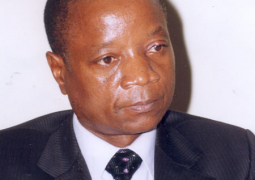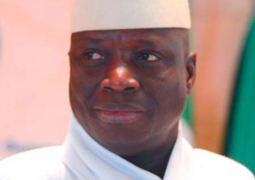They made this pledge at the end of a six-day training course on radio programme production organised by the School of Journalism of the Gambia Press Union (GPU) last week in Jarra Pakalinding village.
The union certified sixteen radio journalists on the merit of their production skills with a view to upgrade the shape of their programmes.
In this vox-pop, Amadou O Bah, acting coordinator and programme manager of Bwiam Community Development Radio in Foni said lack of production knowledge had put his team under constant pressure at work.
“We struggle hard to meet deadlines and quality when it comes to news, advertisement and programme production because most of us cannot produce a complete show. Henceforth, he said the audience of his community radio should be prepared to notice a lot of improvement in the radio service.
Fatou Dibba, who is in her sixth month in the radio service, recalled how tough it has been for her to build personal confidence in her weekly Health Talk Show, at the Farafenni Community Radio in the North Bank Region. The training workshop, she said, has given her the required techniques to jingle out her programme to the expectations of the audience.
“From the preparation stages to the actual programme, I am sure and eager to get back to make the difference.”
Musa NN Darboe, who has been relying on his colleagues to produce his Weekly Agricultural Programme on Jannehkoto Radio in Gunjur, said his dependence is all over.
“When I cover events, I always had to wait for someone to help me with the production before I could present it”, he said. He hopes to go further to share his knowledge with his co-presenters.
Matty Ngum narrated her disappointment with guests of her programmes at the Bansang Community Radio in Central River Region, due to her own lack of proper planning.
Many a time, she said she had to resort to music broadcasting in both her “Market” and “Kitchen” talk shows, because of her guests’ failure to turn up or refusal to speak to her on the record.
She noted that the lectures, especially on interviews, will help her to adjust and live up to expectations on air.
“I think I will immediately stop going out to people in an impromptu manner to feed my programmes. It is interesting to learn about production, more so booking for an interview.”
The first provincial training of the GPU journalism school, according to Gibairu Janneh, who is the Executive Director of the union, was compelled by the critical role the local radios have on their audience. “We are taking the community radios very seriously, because they have the right potential to reach the grassroots in the interest of the communities. He urged them to make good use of all the materials available at their disposal to adapt to the standard of the training activity.
The awards given to the presenters, according to Sang Mendy, one of the teaching assistants of the GPU School of Journalism has the potential to add value to their daily programmes.
He noted that the training session focused from angling a story to gathering information and production to presentation, both theoretically and practically.



